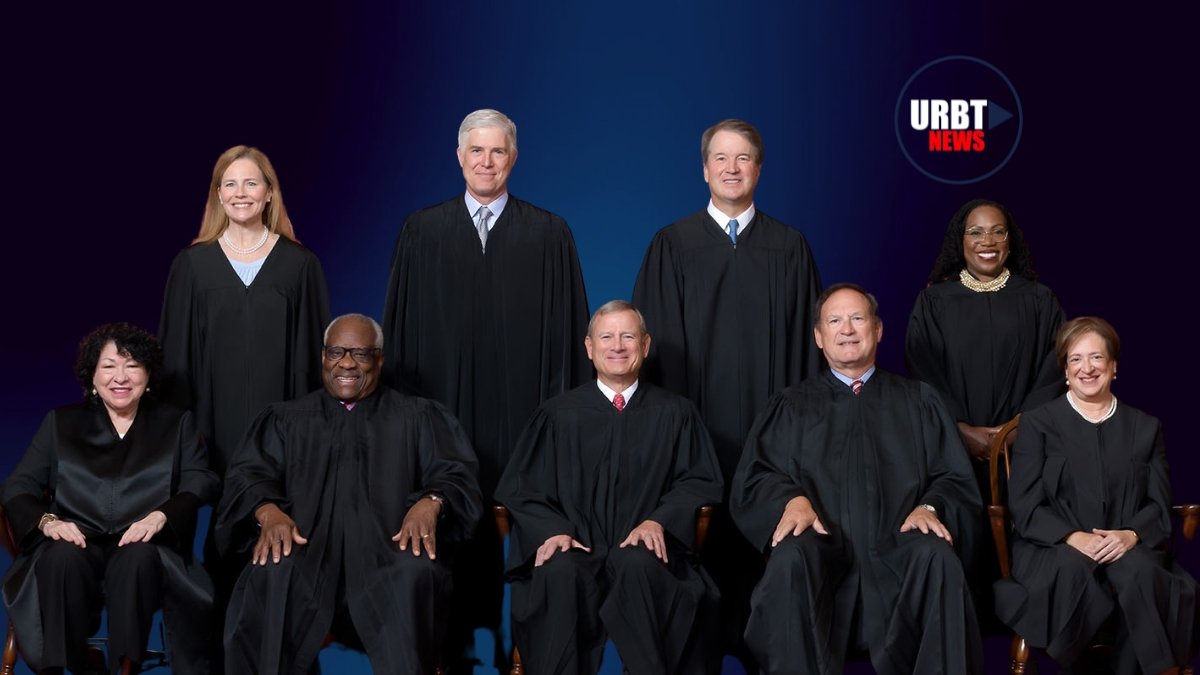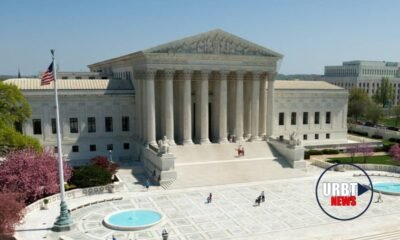Published
6 days agoon

U.S. Supreme Court Landmark Decision in SEC vs Jarkesy, a Turning Point in Administrative Law. In a landmark ruling, the U.S. Supreme Court recently delivered its decision in the case of Securities Exchange Commission v. Jarkesy, a judgment that could significantly reshape the landscape of administrative law and securities regulation in the United States. The ruling, which scrutinizes the constitutional underpinnings of the Securities and Exchange Commission’s (SEC) enforcement practices, has broad implications for the balance of power between federal agencies and the judiciary, as well as the protection of individual rights.
Download the URBT News App from your App store. Apple / Andriod
The case stems from allegations against George Jarkesy, a hedge fund manager accused by the SEC of securities fraud. The SEC initiated an administrative proceeding against Jarkesy, utilizing its in-house administrative law judges (ALJs) to adjudicate the matter. Jarkesy argued that the SEC’s structure and process violated his constitutional rights, depriving him of a fair trial.
Jarkesy’s argument centered on three main points:
In a closely watched decision, the Supreme Court ruled in favor of Jarkesy, addressing the constitutional issues in his case.
The Court held that the SEC’s use of administrative proceedings to enforce securities laws against Jarkesy violated his Seventh Amendment right to a jury trial. Justice Neil Gorsuch, writing for the majority, emphasized that individuals facing significant penalties should have the opportunity to present their case before a jury of their peers, rather than before an administrative judge employed by the very agency prosecuting the case.
The Supreme Court also found that the SEC’s discretion to choose between administrative proceedings and federal court trials constituted an unconstitutional delegation of legislative power. The Court noted that allowing an agency to determine the forum for its enforcement actions without clear guidelines from Congress undermines the separation of powers principle.
Additionally, the Court ruled that the appointment of SEC ALJs did not comply with the Appointments Clause of the Constitution. The Justices highlighted that ALJs exercise significant authority and must be appointed by the President, courts, or department heads. The current method of appointing ALJs, which did not involve these constitutional officers, was deemed unconstitutional.
The Supreme Court’s decision in SEC v. Jarkesy has far-reaching implications for the administrative state and the regulation of financial markets.
This ruling fundamentally challenges the SEC’s ability to use its in-house courts for enforcement actions. The decision mandates that individuals accused of securities violations must receive a jury trial, potentially leading the SEC to bring a significant increase in cases before federal courts. This shift could strain judicial resources and alter the enforcement landscape, requiring the SEC to adapt its strategies and possibly seek additional resources from Congress. Beyond the SEC, the decision casts a shadow over the validity of administrative adjudication practices across various federal agencies. Agencies that rely on in-house judges for enforcement actions may face similar constitutional challenges. This may prompt a reevaluation of their procedures to ensure compliance with the Court’s ruling.
The ruling is a strong reaffirmation of individual rights against administrative overreach. By underscoring the importance of the Seventh Amendment and the Appointments Clause, the Court has reinforced the need for checks and balances within the federal government. Future cases challenging the authority of administrative agencies will likely cite this decision, signaling a potential shift towards greater judicial scrutiny of agency actions.
The Supreme Court decision in Securities Exchange Commission vs Jarkesy marks a pivotal moment in the ongoing debate over the power and accountability of federal agencies. By asserting individuals’ constitutional rights and emphasizing the need for clear legislative guidelines, the Court has set a precedent that could reshape administrative law for years. As the implications of this ruling unfold, both regulators and those they regulate will need to navigate a new landscape defined by heightened judicial oversight and a renewed commitment to constitutional principles.
U.S. Supreme Court Landmark Decision in SEC vs Jarkesy


Trump Gets Broad Immunity: A Historic and Controversial Decision from US Supreme Court


ICAN Celebrates Landmark Decision in SEC v. Jarkesy:


U.S. Supreme Court’s Decision in SEC v. Jarkesy: Implications for SEC vs Punch TV Studios


Supreme Court to Rule on SEC vs Jarkesy: Implications for Small Investors and Entrepreneurs


Voyager 1 Resumes Science Operations in Interstellar Space


Beware: Clams and Oysters Could Be Deadly

